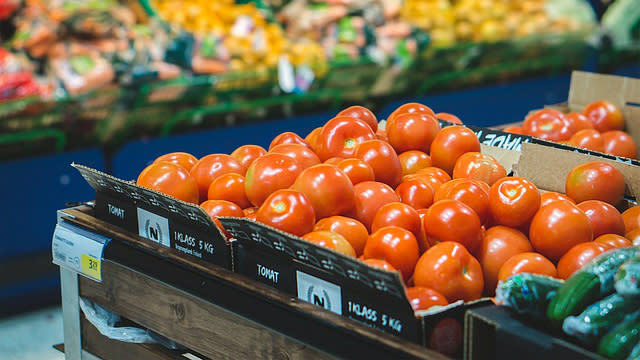Metro, Inc. vs. Loblaw Companies Ltd.: Which Grocer Is Doing Better?

If you are looking for stocks that perform well regardless of the economy, grocery stocks are an interesting choice. Grocery stocks are part of the consumer staples sector, which is a defensive sector. Defensive sectors are less volatile than cyclical sectors, and thus, returns are more constant.
However, there is strong competition among grocers, which are faced with slowing growth and changes in consumers? buying behaviour. Since retaining customers can be difficult, grocers are pressured to cut prices, which, in turn, reduces their profit margins.
Metro, Inc. (TSX:MRU) and Loblaw Companies Ltd. (TSX:L) are among the most important grocery chains in Canada. Let?s have a look at their latest results to see if one stands out from the other.
Metro, Inc.
On November 22, Metro reported a strong 2017 fourth quarter, but the results didn?t meet analysts? expectations.
Despite having one more week than last year?s fourth-quarter calendar, the operating profit of $236 million fell short of the $241 million consensus due to a slight decline of 0.15% in the gross margin.
Adjusted general and administrative expenses also jumped by 0.12% as a share of sales, likely due to costs associated with the purchase offer for the Jean Coutu Group.
Sales were up 10.2% to $3.23 billion. Same-store sales, a key measure of industry performance that removes the effects of added square footage, rose by 0.4%.
Net earnings for the fourth quarter of 2017 were $154.9 million, an increase of 6.8% compared to the same quarter last year. Fully diluted net earnings rose by 10% to $0.66 per share, only $0.01 lower than what was forecasted.
The grocer expects to incur $45-50 million in extra costs in 2018 from the minimum wage hike in Ontario.
Metro, which has stores in Quebec and Ontario, now offers click and collect at seven of its stores in Quebec as well as home delivery service in Montreal, Gatineau, and Quebec City, covering 60% of the province?s population.
The grocery chain is looking to expand its online grocery services to Ontario next year, making it the latest Canadian retailer to increase its e-commerce options in the face of potential threat coming from Amazon following its acquisition of Whole Foods.
The company wants to improve productivity and will reduce hours at some stores.
Loblaw Companies Ltd.
Loblaw reported its 2017 third-quarter results on November 15. The grocery chain more than doubled its profit compared with a year ago, boosted by a $432 million gain on the sale of its gas station business to Brookfield Business Partners.
The retailer earned a profit attributable to common shareholders of $883 million, or $2.24 per diluted share, a rise of 110% and 117%, respectively, compared to a year ago.
Excluding the deal with Brookfield Business Partners and other one-time items, Loblaw earned an adjusted profit attributable to common shareholders of $549 million, or $1.39 per share for the quarter, up 7.2% and 10.3%, respectively, compared to the same quarter in 2016.
Revenue totaled $14.19 billion, up from $14.14 billion in the third quarter of 2016.
Loblaw reported same-store sales growth of 1.4%, excluding gasoline.
The grocer expects to incur $190 million in extra costs in 2018 from the minimum wage hike and is looking to cut costs where it can to offset those increases.
Loblaw announced that it would close 22 unprofitable stores and has partnered with Instacart to launch home delivery service in Toronto in the current month and in Vancouver in January.
The store closures, which are expected to be mostly complete by the end of the first quarter next year, follow an announcement in October that Loblaw would cut 500 corporate and store-support jobs.
Loblaw launched its click and collect offering in 2014, which is now available at 200 locations and expanding in the Atlantic provinces.
Bottom line
While I think that both Metro and Loblaw are great long-term investments in the grocery sector, I would choose to buy Loblaw over Metro, as I feel the former is better prepared to face minimum wage hikes and increasing competition than the latter.
Loblaw is reacting faster than Metro regarding online services and is already closing stores. Despite slowing sales growth, Loblaw has a stronger earnings growth because it is cutting costs in an effective way.
More reading
The surprising new technology that could create the world's very first TRILLIONAIRE
Better Marijuana Stock for 2018: Canopy Growth Corp. or Aurora Cannabis Inc.?
Fool contributor Stephanie Bedard-Chateauneuf has no position in any stocks mentioned. John Mackey, CEO of Whole Foods Market, is a member of The Motley Fool's board of directors. John Mackey, CEO of Whole Foods Market, an Amazon subsidiary, is a member of The Motley Fool's board of directors. David Gardner owns shares of Amazon. The Motley Fool owns shares of Amazon and BROOKFIELD BUSINESS PARTNERS LP.

 Yahoo Finance
Yahoo Finance 